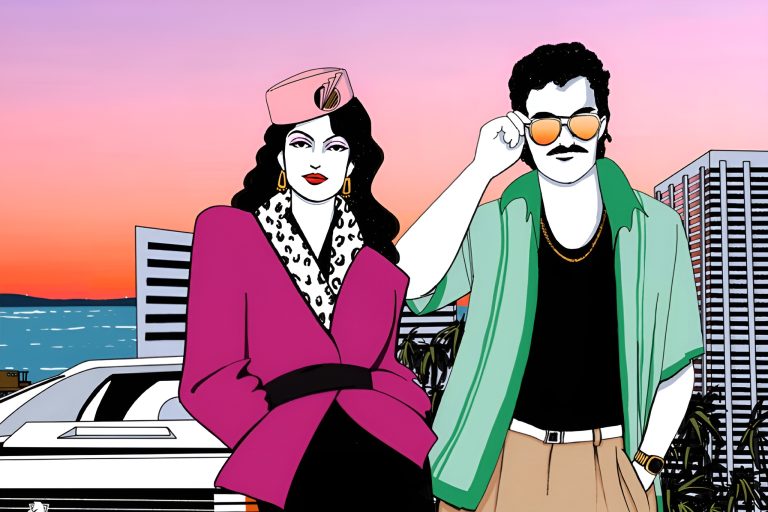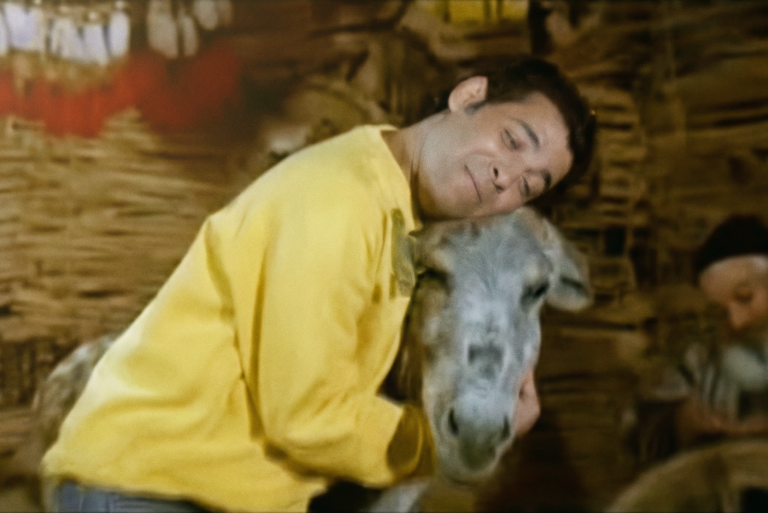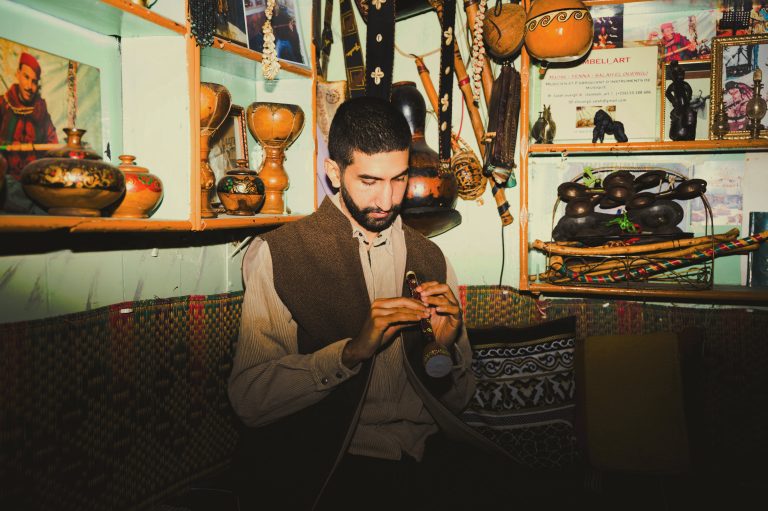“Guests are a gift from God.”
On my fifth night at the Tsinandali Estate, Elene Machavariani, the estate’s COO, offered me this Georgian saying. It landed with quiet force. In those words, I found the essence of my September in Georgia: a hospitality that was less performance than philosophy, less courtesy than creed. That sentiment framed everything that followed — from the symphonies that echoed across the vineyards of Kakheti to the heady opening of the Telegraph Hotel in Tbilisi, where the world’s first Rolling Stone Rooftop was unveiled.
Georgia, perched on the ancient Silk Road, wasn’t just hosting visitors. It was declaring itself to the world — through music, architecture, wine, and an unshakable belief in the power of welcome.
A Stage for Unity
At Tsinandali, history and geography converge. The estate, once home to Georgian aristocrat and poet Alexander Chavchavadze, lies in the heart of wine country. In the 19th century, its salons played host to intellectuals and artists debating Europe’s future. Two centuries later, those courtyards now pulse with violins and brass, as the Tsinandali Classical Music Festival transforms the vineyards into a crucible of cultural diplomacy.
This main theme of the festival’s striking atmosphere and performances is its youth orchestra. Composed of musicians from across the Caucasus, Western Europe. The orchestra stands consistently as a living rebuke to division.

“Young musicians from Armenia, Azerbaijan, Turkey, Georgia, and yes, even Russia and Ukraine, rehearsing together — that is not just music, it is peace,” said Giorgi Ramishvili, the Georgian entrepreneur, philanthropist, and cultural patron who has become the driving force behind Tsinandali’s revival and the visionary behind the Telegraph Hotel and the world’s first Rolling Stone Rooftop in Tbilisi. “It is proof that our region can be connected not by politics or conflict, but by harmony.”
The sight of teenagers bent over sheet music, trading jokes in broken English, Russian, and Georgian, carried an emotional force that transcended geopolitics. In a region too often fractured by war and borders, the orchestra offered another map — one traced in notes, not lines.
Nights in Kakheti
The festival unfurled over days and nights where music mingled with the scents of wine and earth. As dusk fell, the courtyard lights flickered on, and the vineyards stretched into the horizon, the wind accompanying the orchestras like a hidden musical section.
The line-up was staggering: conductors of global renown, virtuoso soloists, and ensembles that pushed the edges of classical form. Yet it was the youth orchestra that drew the deepest applause — not for technical perfection, but for what their presence symbolized.
“The music is important, of course,” Giorgi reflected, “but it is the faces of the young people together, on the same stage, that changes something in your heart. This is cultural diplomacy at its highest level.”
Storytelling as Strategy
For Giorgi, the festival is more than art — it is narrative.
“Storytelling is at the heart of everything we do,” he said. “I am not interested in projects that are just business. They must tell our story, show who we are, and why we matter.”
This is why the Tsinandali Festival is paired with wine conferences that showcase Georgia’s 8,000-year-old viticultural tradition, or why opera and poetry are folded into its future programming. It’s why Giorgi has revived jazz clubs in Tbilisi and commissioned Japanese architect Kengo Kuma to design a concert hall. Every project, he insists, must be both local and global.
“Georgia is at a crossroads,” he told me. “If we do not tell our story ourselves, others will write it for us.”

The Meaning of Hospitality
The Georgian concept of hospitality kept surfacing. Guests weren’t customers or spectators — they were participants in the cultural story being told. Food and wine weren’t afterthoughts but essential notes in the composition.
“Our wine is our history, our faith, our hospitality,” Giorgi explained. “Sharing it with the world is as important as music. Together they create the dialogue we need.”
To drink Georgian wine beneath the music at Tsinandali was to experience something elemental — not a performance but a communion.
From Vineyards to Rooftops
If Tsinandali was Georgia’s cultural root system, the next stop — the Telegraph Hotel in Tbilisi — was its bold new branch. The hotel opened with the unveiling of the world’s first Rolling Stone Rooftop, a space Giorgi believes signals Georgia’s place in the global creative conversation.
On opening night, the terrace brimmed with a mix of local artists, diplomats, and international guests. Glasses of Kakhetian wine clinked under the city lights. A jazz trio set the tone, their sound ricocheting off minimalist design that blended concrete with warm wood, Georgian tradition meeting cosmopolitan cool.

Why Rolling Stone? Giorgi’s answer was precise: “Rolling Stone is rebellion. It is creativity. It is the global conversation. By putting its name here, we are saying Georgia belongs in that conversation.”
For him, this was not a franchise play. It was cultural export. “We wanted to create something unique, something that could only be here and nowhere else,” he said.

Silk Road Redux
Threaded through every performance, every glass of wine, every rooftop toast was the idea of the Silk Road. Georgia has long been defined as a crossroads; Giorgi wants that geography to become strategy.
“The Silk Road is not a cliché — it is our reality,” he said. “We must stay independent and proud, but also open. Being part of the European family, while keeping our unique voice, is the only way forward.”
Music festivals, luxury hotels, even rooftop bars — these, in his telling, are not luxuries. They are instruments in a larger score, projecting Georgia’s identity outward while inviting the world inward.
Looking Ahead
The ambitions don’t end here. Plans are underway for a new concert hall at Tsinandali, designed by Kuma, alongside an expanded program of opera, poetry, and global wine events. Giorgi envisions it as a permanent stop on the world’s cultural circuit.
“We want this to be a permanent stop on the world’s cultural map,” he said. “High quality, high sincerity, high meaning — that is the formula.”
The Geopolitical Undercurrents
But Giorgi is not naïve about the forces pressing in on Georgia. His country sits between giants — Turkey to the west, Iran further south. War in Ukraine has reshaped the region’s dynamics. Yet even here, Giorgi seeks nuance.
“There were Russians and Ukrainians playing together in this orchestra,” he said quietly. “On the political stage, they are enemies. On our stage, they are colleagues, friends, musicians. This is what gives me hope.”
“The Russian people, like all people, love culture, love beauty, love music. We must remember this. Governments fight, but people can still meet each other in art.”
It was a striking reminder that cultural diplomacy isn’t just about concerts and rooftops — it’s about survival, about creating spaces where dialogue remains possible even when politics collapse.
A Closing Note
As the night deepened on the Rolling Stone Rooftop, the city lights flickering across the Mtkvari River, it was hard not to sense Georgia on the cusp of something extraordinary. With music as its passport and storytelling as its language, the country is positioning itself as more than just a geographic crossroads — it is becoming a cultural one.
Giorgi leaned back as we wrapped our interview. “We must do things that are not only beautiful,” he said, “but that carry meaning. Otherwise, why do them?”
In the end, the harmony of September in Georgia wasn’t only in the orchestras or in the clinking of wine glasses. It was in the conviction that, in a fractured world, unity can still find a stage. And that stage, for a moment, was Georgia.














